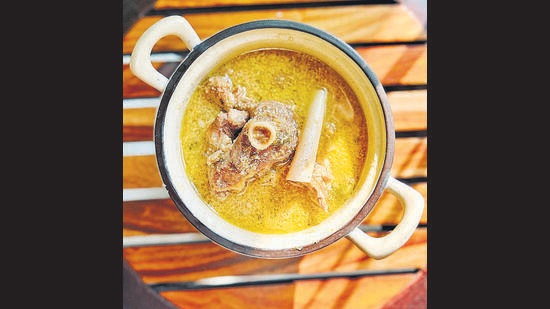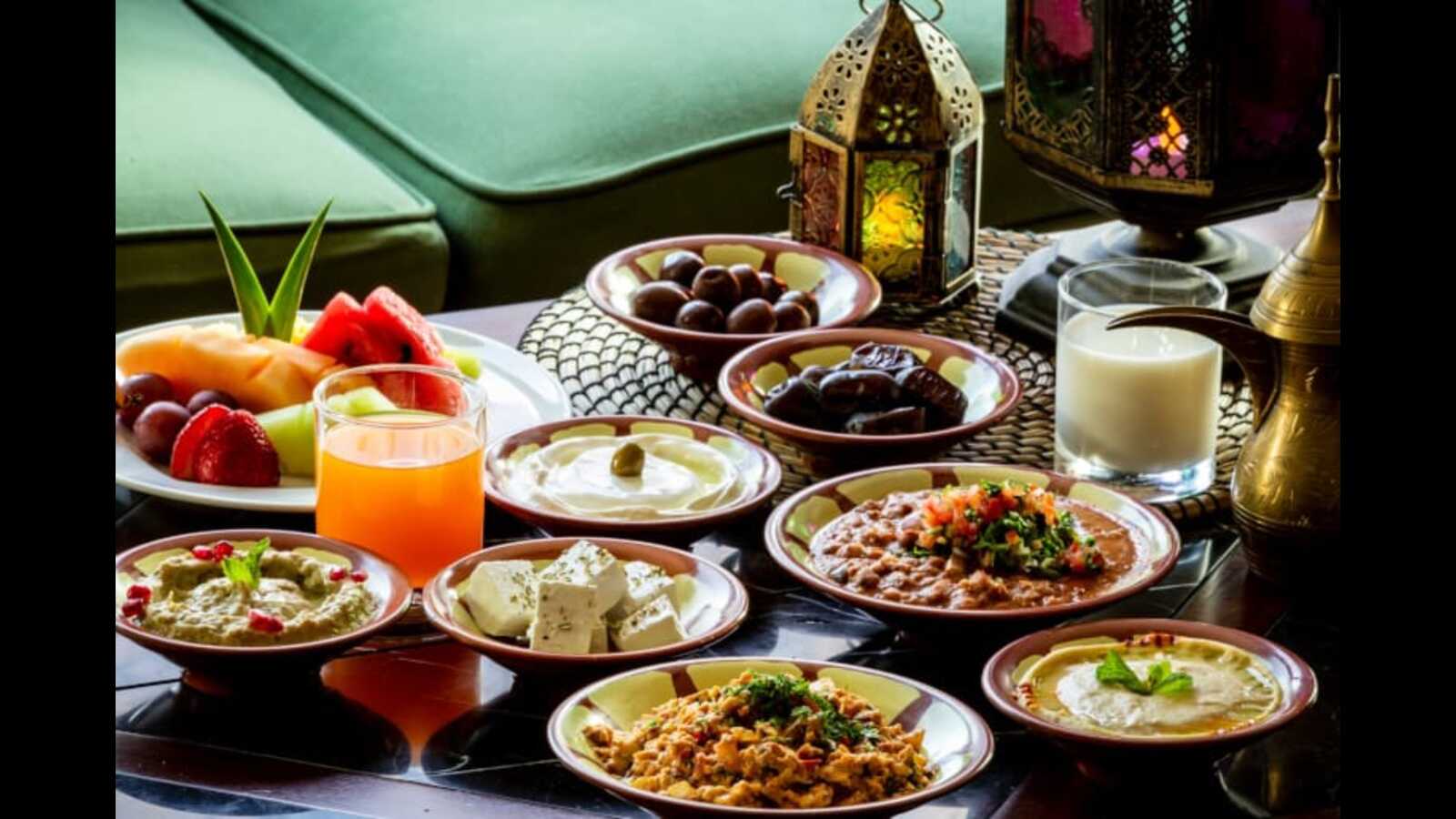Breaking fast with family and friends over the evening meal, iftar, is always a hearty affair. While earlier, it used to be a grand get-together for the entire neighbourhood, the feast is now trimmed to family and occasional relatives. But the Ramzan dastarkhan is as lavish as always, livened up by preparations treasured over centuries. Chefs and gourmands tell us about time-tested delicacies prepared in their homes. “One dish that we always served as part of the iftar spread was ganji, a semolina-based traditional preparation. We have continued serving it to our guests. It’s a nutritious soup that takes three-four hours to prepare. With minced mutton in it, it’s very pleasing to the palate,”says chef Anees Khan, who hails from Orissa.
Culinary expert Shazia Bukhari, daughter-in-law of Jama Masjid’s Shahi Imam, says that a rich nihari always takes centre stage in the iftar she prepares at home. It’s believed to have been invented in Old Delhi during the Mughal era and considered a shahi (royal) dish. It’s a wholesome meal made with tender meat and dry fruits. Earlier, our grandmothers spent five-six hours simmering it to perfection, and now it’s prepared in just two to three hours. But it’s still irresistible,” she says. Another dish that rubs shoulders with nihari on her dastarkhan is the Bukhari Pulao. “A Saudi Arabian speciality, it’s fragrant rice flavoured with spices, served with perfectly cooked roasted chicken.”
The spices one use while preparing the delicacies makes a difference. Born in Uttarakhand, chef Riyaz Ahmed, The Claridges, says, “It’s the spices that matters and I make sure to use whole ground spices from Old Delhi. It’s my family tradition to add selected spices, be it cinnamon, chillies or meat masala.”

For beauty expert Shahnaz Husain, who grew up in the city of nawabs and tehzeeb, Lucknow, Ramzan is about reliving her childhood traditions. “My mother liked to supervise the khansamas (family cooks) to ensure a perfect iftar. Although they were experts in their craft, she insisted on overseeing, especially the slow cooking of Haleem — a delightful stew made with wheat, meat and fragrant spices. There can be no short cut to this dish. It is cooked for 5-6 hours and then beaten with a pestle-like stick to achieve a smooth blend of spices, meats, and wheat. The dish features in our iftar even now. It’s a very filling dish, full of flavours and nutrition,” says Husain.
Singer Nilofar Wani, who hails from Jammu and Kashmir, loves to prepare Yakhni for iftar, served in large dongas. “It’s tender mutton cooked in a yoghurt gravy, flavoured with whole spices. We also make Roghan Josh — mutton cooked with tomatoes, curd, Kashmiri laal mirch, and crushed spices. Marchwangan Korma is yet another specialty perfected over generations, made with mutton, Kashmiri laal mirch, fennel seeds, saffron and other spices. What gives these dishes a distinct taste is the inclusion of animal fat,” says Wani. Vibrant chutneys such as akhrot ki chutney (walnut dip), mooli ki chutney (radish dip) and dahi ki chutney (curd dip) are also a must. “In Kashmir, iftar is a grand affair with at least 30 people feasting together, as our families are close-knit. In Delhi, it’s a small gathering, but the traditional dishes are still prepared painstakingly to retain authenticity,” she says.
Journalist and novelist Alka Raza, married to ex-UN diplomat Shariq Bin Raza, who lives in Shikwa Haveli, their 700-year-old ancestral mansion in Baghpat, Uttar Pradesh, shares that moong and urad daal rasgulle and dahi phulki are the two dishes served in the haveli on iftar since ages. “For the unique rasgulle, daals are soaked overnight and then turned into a thick paste, fried and dipped in a mild sugar syrup and rose water, while dahi phulki is made with besan, green chili, and onion, left for a few hours, fried and soaked in hot water with heeng and then dipped in curd, topped with zeera-lal mirch ka chauka.
Bukhari Pulao
Ingredients
1/2 kg basmati rice (soaked for 20 minutes)
1 kg chicken with skin on (cut into 4 huge pieces)
2 large onions; 1 tsp garlic paste
2 tsp tomato paste; 2 large (pureed) tomatoes
100 gm raisins; 50 gm almonds (both fried)
4 green chillies; 2 dried limes
1 carrot, 1 potato (both cubed)
1 cube chicken stock; 2 tsp olive oil
Preparation
Add 1/2 tsp cumin seeds, 1 black peppercorn, 3 cinnamon sticks, 4 cardamom and cloves each, 5 bay leaves to a hot pan. Roast until the spices release their aroma. Grind to a fine bukhari masala powder.
Heat olive oil (or butter) in a thick-bottomed non-stick pan that has a lid. Add 2 cardamom pods, cinnamon sticks, cloves, chopped onions, and a bit of salt. Sauté until the onions are soft, golden brown.
Add chicken pieces, bukhari masala, dried limes, tomato paste and puree, garlic paste, chicken stock cube, half cup of hot water.
Add the cubed carrots and potatoes, green chillies. Cook for 15 minutes with the lid on. When this mixture boils, take out the chicken and keep it aside to be grilled later. Taste the broth for seasoning and add soaked basmati rice.
Stir well, cook with the lid on. When the water is reduced and the rice is well cooked, lower the flame and cook for 8 more mins with the lid on. Grill the chicken and place it on top of the rice. Garnish with fried almonds and raisins, generously.
By Shazia Bukhari
Stay connected with us on social media platform for instant update click here to join our Twitter, & Facebook
We are now on Telegram. Click here to join our channel (@TechiUpdate) and stay updated with the latest Technology headlines.
For all the latest Food and Drinks News Click Here

